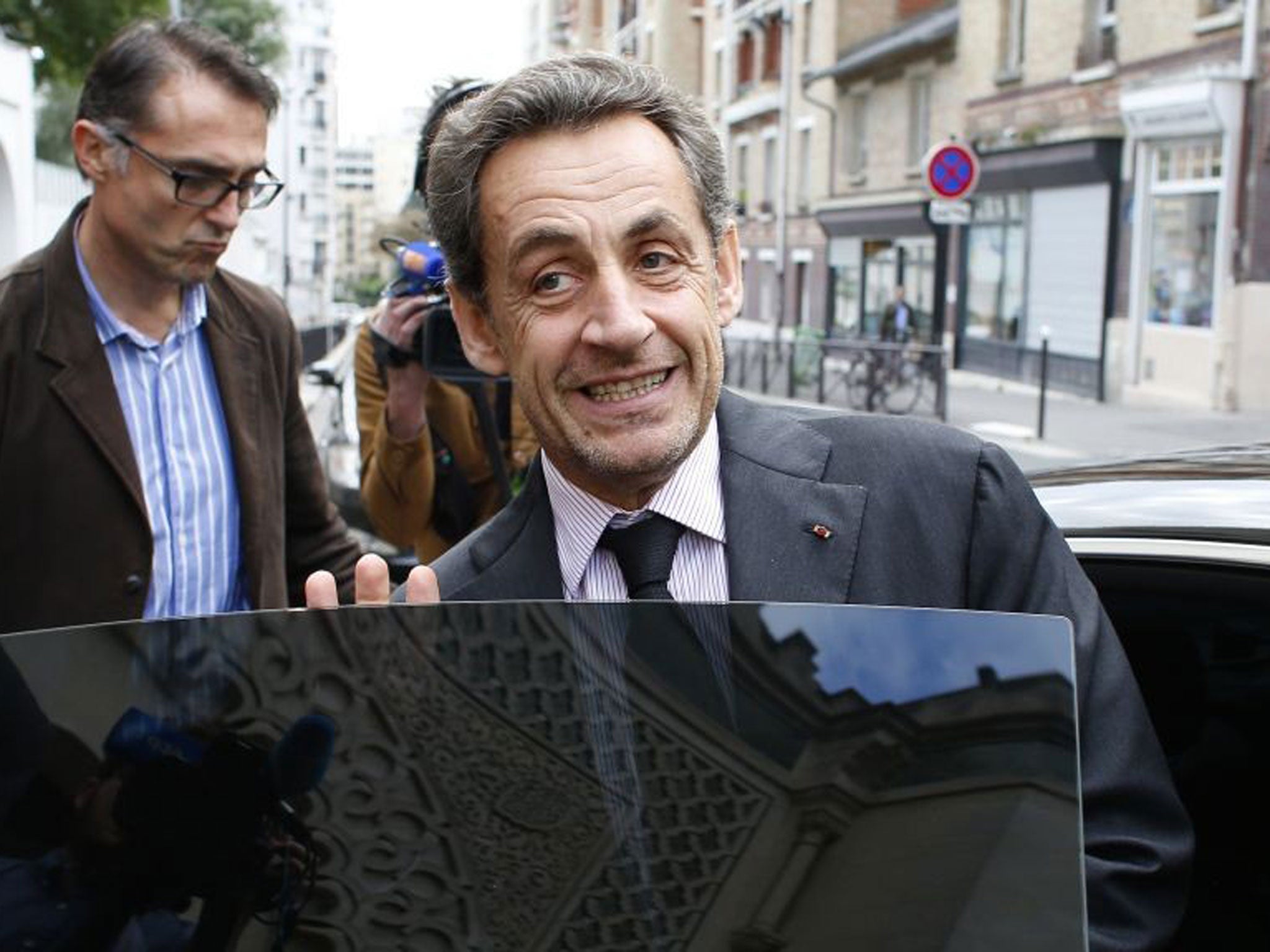Can Nicolas Sarkozy stage another comeback? Court ruling clears way for former French president to reclaim his throne

Liberated by a ruling last week that spares him the humiliation of a trial for the alleged fleecing of the ailing nonagenarian billionairess Liliane Bettencourt, Nicolas Sarkozy has been "energised", say his friends. Thus reinvigorated, he intends to rise from the political grave next year and begin a three-year campaign to reclaim the Elysée Palace.
The former president hopes to jump back into the ring early next summer when he expects mainstream politicians of both left and right to have been discredited by a far right triumph in the European elections.
In recent months, he has carefully constructed an ambiguous status as a youthful – he is 58 – political retiree and the nation's not-quite-declared saviour-in-waiting. With the threat of a Bettencourt trial removed, some commentators suggest he may re-enter full-time politics before the New Year.
Friends and supporters insist, however, that Mr Sarkozy's strategy will be to wait until May, when both his rivals on the centre right and the Socialist president, François Hollande, are ridiculed after a defeat by Marine Le Pen's National Front in the European poll.
"He knows he has to remain above the fray as long as possible," one senior supporter said. In the meantime, his strategy is to "send postcards", mostly written by friends, reminding French people of the "strong, determined, clear-minded" leader that they rejected last year.
There is no precedent in any large western democracy for the return to office of a defeated head of state, but the Sarkozy faithful point to the deep unpopularity of President Hollande and the failure of any obvious centre-right successor. They believe that Mr Sarkozy can pose successfully – despite his unsuccessful hard right re-election campaign in 2012 – as the only bulwark against the rise of Ms Le Pen's sanitised far right.
However, many political and judicial obstacles remain. Despite the jubilation of Mr Sarkozy's friends, even the Bettencourt case may still come back to haunt him. In the small print of their written statement last Monday, magistrates accused Mr Sarkozy of "abusive behaviour" towards the 90-year-old billionairess, whose mental powers were waning. They also accused him, in effect, of lying under questioning.
Magistrates added that they had found insufficient evidence to charge the former president but they sent for trial 10 other people – including Mr Sarkozy's 2007 campaign treasurer, Eric Woerth. He is accused of receiving up to €400,000 in cash for Mr Sarkozy's campaign, allegedly obtained fraudulently from a confused Ms Bettencourt.
Mr Woerth never visited the old lady. Mr Sarkozy did – twice according to the magistrates, once according to the ex-president.
Mr Sarkozy and his friends insist that he was implicated in the case unfairly, for political reasons. The truth may be the reverse. The evidence against him was always slender, but he would probably have been sent for trial if he had not been a former president.
Mr Sarkozy's name also appears in a string of other criminal investigations, although he has not been formally accused of wrong-doing in any of them. They include allegations that his campaign took cash in 2007 from the Libyan dictator Muammar Gaddafi, and that his government cheated the French tax-payer by arranging a sweetheart settlement of a long-standing dispute between the state and his friend, the tycoon Bernard Tapie.
There are also political obstacles to Mr Sarkozy's return, not least the fact that he remains unpopular with the electorate. The polls are, admittedly, confusing. Some suggest that Mr Sarkozy is the second most popular politician in France with 33 per cent support, behind the hard-line interior minister, Manuel Valls. Others suggest that over 50 per cent of French voters strongly oppose a Sarkozy term.
The former president's return is far from universally popular within his own centre-right party, the Union pour un Mouvement Populaire (UMP). Mr Sarkozy's former friend, and former prime minister, François Fillon, has already a declared himself a candidate for the next presidential election.
Last week, in a seeming attempt to draw the former president into the running, Mr Fillon was quoted as saying: "Today, I think I am better placed than Nicolas Sarkozy to win in 2017."
But Sarkozy's strategy is to act for as long as possible as a "king over the water" or a reincarnation of Charles de Gaulle waiting for the nation's call from 1945 to 1958. He wants, if possible, to come back to popular acclaim, at least on the centre-right, and to avoid a contested UMP or centre-right primary against Mr Fillon.
That now seems unlikely. A damaging war between the two men, long simmering, is about to boil over.
Finally, the great unknown is the performance of the French economy. François Hollande's popularity has slid into the low 20s. Only an upturn in the economy can now save him.
There are signs that activity is picking up, but this may be too late to spare the Socialists from humiliating defeats in municipal elections in March and in May's European poll. Mr Hollande can, however, still hope to fight for re-election in 2017 in benign economic weather – just as Mr Sarkozy fought for a second term in 2012 in the teeth of a recession.
Join our commenting forum
Join thought-provoking conversations, follow other Independent readers and see their replies
Comments
Bookmark popover
Removed from bookmarks